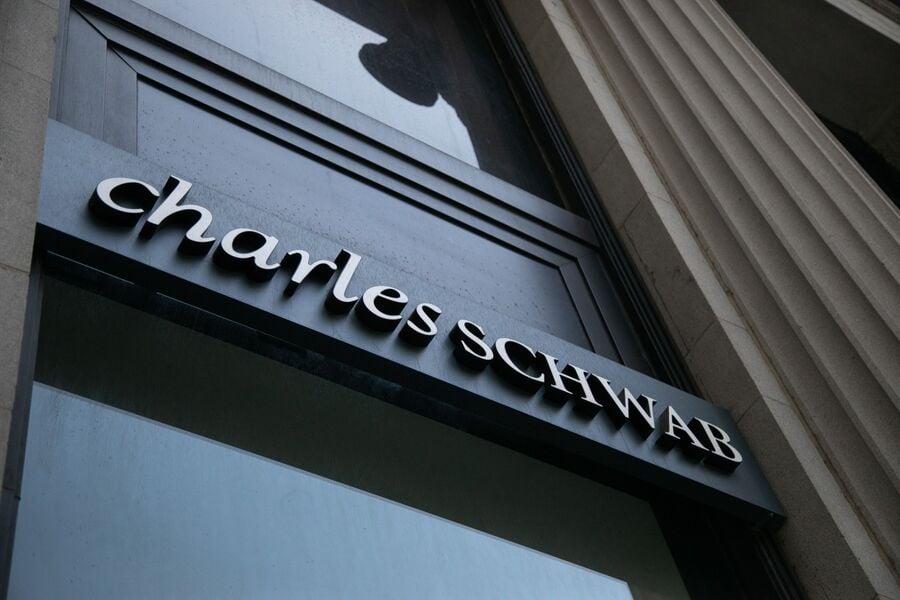

Charles Schwab Corp. said it has been temporarily affected by attrition from clients as it integrates TD Ameritrade, leading to a decline in net new money for the company last month.
Schwab had $4.9 billion of total core net new assets in August, a 64% decline from July and 89% from a year earlier, the company said in a statement Friday. Core net new assets excluding Ameritrade brokerage clients equaled $28.1 billion for the month.
Firmwide new money “has been temporarily impacted by asset attrition from clients originating at Ameritrade,” chief financial officer Peter Crawford said in the statement.
The majority of deal-related outflows have been attributed to Ameritrade advisory clients, “including a select number of relationships that did not meet our criteria for an ongoing service relationship,” Crawford said.
Shares of the brokerage fell 3.2% to $57.87 at 9:30 a.m. in New York. The stock has tumbled about 30% this year.
The Federal Reserve’s interest-rate hikes over the past year have pressured the company’s banking arm, a pivotal source of revenue. Higher rates encouraged some Schwab clients to move money from the bank to other investment products, including money-market funds, in a process known as “cash sorting.”
The company’s executives said previously that the worst of that deposit move is over and they anticipate growth again by the end of this year.
In the first half of September, Schwab has seen essentially neutral flows on cash after a “brief uptick“ in cash moving into higher-yielding investment options at Schwab following the Federal Reserve’s latest increase in interest rates.

With a fifth of RIA firms using AI to create marketing content, one leading voice argues a clear identity and focusing on clients will be crucial to success.

LPL Financial is a bellwether for the broader financial advice marketplace.

The San Francisco-based startup's Series A funding, with support from Schwab and Edward Jones Ventures, will reinforce its role in the coming $124 trillion wealth transfer.

The quartet of deals across New York, Florida, Ohio, and New Mexico reinforces the fast-growing integrator's leading position in the independent space.

UBS and Wells Fargo have made their own additions in the Northeast, including a Massachusetts duo defecting from Commonwealth.
Orion's Tom Wilson on delivering coordinated, high-touch service in a world where returns alone no longer set you apart.
Barely a decade old, registered index-linked annuities have quickly surged in popularity, thanks to their unique blend of protection and growth potential—an appealing option for investors looking to chart a steadier course through today's choppy market waters, says Myles Lambert, Brighthouse Financial.
